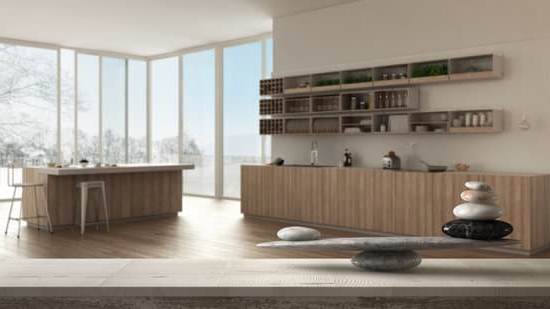Creating an ideal feng shui bedroom layout is crucial in ensuring a harmonious and balanced energy flow in your space. Feng Shui, an ancient Chinese practice, focuses on the arrangement and positioning of objects to promote positive energy flow, also known as Qi. When it comes to bedroom design, the principles of Feng Shui play a significant role in creating a peaceful and relaxing environment that supports restful sleep and overall well-being.
The layout and design of a bedroom according to Feng Shui principles can greatly impact the quality of sleep, relaxation, and overall energy levels. By understanding the fundamentals of Feng Shui and implementing them into the bedroom, individuals can experience improved mental clarity, emotional balance, and physical health. Proper placement of furniture, strategic use of colors and decorations, as well as consideration for lighting and ventilation are all essential components in creating an ideal Feng Shui bedroom layout.
Achieving optimal Feng Shui in the bedroom goes beyond simply arranging furniture or choosing decor; it involves creating a space that promotes a sense of tranquility and harmony. In this article, we will explore how to incorporate Feng Shui principles into your bedroom design to cultivate a space that encourages positive energy flow while promoting restful sleep and overall well-being.
Choosing the Right Location for the Bedroom
The location of the bedroom within a home plays a significant role in the flow of energy, or chi, according to Feng Shui principles. It is believed that the positioning of the bedroom can impact various aspects of one’s life, including health, relationships, and overall well-being. When considering the ideal location for a bedroom based on Feng Shui, there are several key factors to keep in mind.
How Location Affects Energy Flow
The concept of Feng Shui emphasizes the importance of the energy flow within a space. When it comes to the bedroom, the location within the home can greatly influence how energy circulates throughout the room.
For instance, a bedroom located at the end of a long hallway may experience stagnant chi, which can disrupt sleep and overall harmony in the space. On the other hand, a bedroom situated near an entrance or in close proximity to a bathroom may be subject to excessive energy flow, leading to restlessness and instability.
Tips for Selecting an Ideal Location
When choosing the location for a bedroom based on Feng Shui principles, it is important to consider several tips for optimal energy flow. Ideally, bedrooms should be located away from high-traffic areas and noisy environments to promote tranquility and relaxation.
Additionally, bedrooms should not be positioned directly above garages or storage areas as this can lead to heavy energy pressing down on occupants while they sleep. Choosing a quiet and peaceful area of the home with good natural light and ventilation can contribute to a more harmonious living environment based on Feng Shui principles.
Bed Placement and Positioning
The positioning of the bed in a bedroom according to Feng Shui principles is crucial for creating a harmonious and balanced energy flow. In Feng Shui, the bed represents you as well as your relationships, so its placement is significant for overall wellbeing. The ideal position for the bed is diagonally across from the door, allowing you to see the entrance while in bed but not be directly in line with it.
Placing the bed against a solid wall provides a sense of stability and support, while avoiding placing it under a window or against a wall with plumbing can help maintain a steady flow of energy around the bed. Additionally, having space around all sides of the bed allows for positive energy (or Qi) to flow freely around you as you sleep.
In Feng Shui, it is important to have equal access to both sides of the bed, so if sharing the bedroom with a partner, ensure that there is space on either side for easy entry and exit. By following these guidelines for bed placement and positioning based on Feng Shui principles, individuals can create an optimal environment for rest and relaxation while promoting balanced energy flow throughout the bedroom.
Color and Decor Choices
When it comes to creating an ideal Feng Shui bedroom layout, the choice of colors and decor has a significant impact on the energy flow in the space. According to Feng Shui principles, specific colors are believed to promote balance and harmony, while others may disrupt the flow of positive energy. It is essential to choose colors and decor that resonate with the energy you want to cultivate in your bedroom.
Some recommended colors for a harmonious and balanced bedroom include:
- Soft, soothing tones such as light blues, greens, and lavenders
- Earthy hues like beige, tan, and warm browns
- Pastel shades that evoke a sense of calmness and serenity
In terms of decor choices, it is advisable to incorporate elements that contribute to a peaceful and tranquil environment. This may include incorporating natural materials such as wood or bamboo furniture, soft fabrics for curtains and bedding, and minimalistic artwork that promotes relaxation.
When selecting decor items for your Feng Shui bedroom, consider incorporating elements that hold personal significance or symbolism to enhance the energy flow within the space. These can be objects that resonate with positive emotions or memories, bringing a sense of comfort and well-being to the room.
Ultimately, by carefully choosing colors and decor items that align with the principles of Feng Shui, you can create a serene and balanced atmosphere in your bedroom that promotes restful sleep and overall well-being.
Furniture Placement
Importance of Furniture Placement in Feng Shui Bedroom Layout
Furniture placement plays a crucial role in the Feng Shui of the bedroom. The positioning of furniture can either enhance or disrupt the flow of energy in the room. In Feng Shui, it is believed that the bedroom should be a place of relaxation and rejuvenation, and proper furniture placement contributes to this desired atmosphere.
Tips for Arranging Furniture for Positive Energy Flow
When arranging furniture in the bedroom, it is essential to create a sense of balance and harmony. This can be achieved by ensuring that there is enough space around each piece of furniture and that it does not obstruct the natural flow of movement within the room. For example, placing the bed against a solid wall with a clear view of the door allows for a sense of security and stability, enhancing overall comfort and peace.
It is also important to avoid cluttering the bedroom with too much furniture. Overcrowding the space can disrupt energy flow and create feelings of unease. Instead, opt for a minimalist approach by only including necessary pieces of furniture that serve a functional purpose while promoting positive energy circulation throughout the room.
Lighting and Ventilation
When it comes to creating the ideal Feng Shui bedroom layout, the role of lighting and ventilation should not be overlooked. Proper lighting can significantly impact the energy flow in a room, while good ventilation ensures the air remains fresh and positive energy can circulate freely. In Feng Shui principles, both lighting and ventilation are crucial elements in promoting a balanced and harmonious environment in the bedroom.
To optimize the lighting in your bedroom according to Feng Shui principles, consider incorporating a combination of natural and artificial light. Natural light is believed to bring positive energy into the space, so try to maximize natural light during the day by keeping windows unobstructed. In terms of artificial light, choose soft, ambient lighting that creates a warm and relaxing atmosphere. Avoid harsh or bright overhead lights, as they can disrupt the peaceful energy flow in the room.
In addition to proper lighting, good ventilation is essential for maintaining a healthy energy flow in the bedroom. Stagnant air can lead to stagnant energy, so it’s important to ensure that fresh air can circulate throughout the space.
Keep windows open whenever possible to allow for natural airflow, and consider adding indoor plants to enhance air quality. By paying attention to both lighting and ventilation in your bedroom design, you can create an environment that supports positive energy flow and promotes overall well-being.
By incorporating these tips for optimizing lighting and ventilation into your Feng Shui bedroom layout, you can create a space that feels inviting, peaceful, and harmonious-a true sanctuary for rest and relaxation. Making small adjustments based on these principles can have a big impact on the overall energy of your bedroom, helping you achieve a balanced and nurturing environment for sleep and rejuvenation.
De-Cluttering and Organization
When it comes to Feng Shui bedroom layout, one of the most important aspects to consider is de-cluttering and organization. Clutter can disrupt the flow of energy in the bedroom, creating a chaotic and unbalanced environment. It is essential to keep the space tidy and organized to promote a sense of calm and tranquility.
To start, it’s important to remove any unnecessary items from the bedroom that do not serve a specific purpose or bring joy. This includes old clothes, broken items, or anything that causes visual clutter. Organizing storage spaces such as closets and drawers can also contribute to a more peaceful atmosphere in the room.
Incorporating storage solutions that are both functional and aesthetically pleasing can help maintain order in the bedroom. This could include stylish baskets for laundry or extra blankets, floating shelves for books or decorative items, and under-bed storage containers for seasonal clothing or bedding. By utilizing these storage options, you can keep personal belongings out of sight while still maintaining a clean and organized space.
| De-Cluttering Tips | Organization Suggestions |
|---|---|
| Remove unnecessary items | Incorporate functional storage solutions |
| Keep surfaces clear of clutter | Create designated spaces for personal belongings |
Personalization and Individual Energy
Incorporating personal elements into the Feng Shui bedroom layout can enhance the overall energy and create a more harmonious space. When it comes to personalization, it is essential to consider individual energy and its impact on the design and layout of the bedroom. Here are some tips for incorporating personal elements and understanding individual energy in your Feng Shui bedroom layout:
- Personalized decor: Incorporate artwork, photographs, or items that have personal significance to you. This could be anything from meaningful quotes framed on the wall to family photographs placed in a specific area of the room.
- Individual symbolism: Consider including items that hold personal meaning or symbolism for you. These could be items related to your hobbies, travel experiences, or cultural background.
- Customization based on energy: Take into account your own energy and preferences when customizing the layout of your bedroom. For example, if you prefer natural light in the morning, position your bed near a window where sunlight can enter the room.
Understanding individual energy is essential in creating a personalized Feng Shui bedroom that promotes balance and harmony. By incorporating elements that resonate with your personal energy, you can create a space that not only adheres to Feng Shui principles but also reflects who you are and what makes you feel most comfortable.
Remember that personalization should be done thoughtfully and intentionally to ensure that it enhances the overall energy flow in the bedroom rather than disrupts it. By considering your own energy and incorporating personalized elements mindfully, you can create a truly balanced and harmonious Feng Shui bedroom that aligns with both universal principles and individual preferences.
Conclusion
In conclusion, creating an ideal Feng Shui bedroom layout is essential for promoting balance and harmony in the space where we spend a significant amount of time rejuvenating ourselves. By incorporating the principles of Feng Shui into the design and layout of our bedrooms, we can optimize the flow of energy to create a peaceful and restful environment.
From choosing the right location for the bedroom to selecting the perfect bed placement, color choices, furniture arrangement, lighting and ventilation, as well as de-cluttering and personalization, every aspect plays a crucial role in achieving the ideal Feng Shui bedroom.
It is important to keep in mind that a balanced energy flow in the bedroom can positively impact our overall wellbeing. As we strive to create an environment that promotes relaxation, rejuvenation, and positivity, applying Feng Shui principles becomes a valuable asset. By understanding the significance of each element within the bedroom layout according to Feng Shui principles, one can transform their space into a sanctuary that nurtures both physical and emotional health.
Ultimately, incorporating Feng Shui principles into our bedroom design not only enhances the aesthetic appeal of the space but also contributes to our overall quality of life. The intention behind creating an ideal Feng Shui bedroom layout is to establish a harmonious and balanced environment that supports restful sleep, relaxation, and overall wellbeing. By taking these key points into consideration and applying them to our own bedrooms, we can create a space that truly promotes tranquility and positive energy flow.
Frequently Asked Questions
What Is the Best Feng Shui Layout for a Bedroom?
The best Feng Shui layout for a bedroom is one that promotes a sense of calm, relaxation, and balance. This can be achieved by placing the bed in the commanding position, which allows you to see the door while lying in bed without being directly in line with it.
It’s also important to have a solid headboard, clear pathways around the bed, and a balanced placement of furniture.
Which Direction Is Best to Face Your Bed?
The best direction to face your bed is considered to be either south or east. In Feng Shui, these directions are believed to promote restful sleep and overall well-being. It’s also recommended to avoid placing your bed in direct alignment with the door or under a window, as these positions can disrupt the flow of chi energy.
What Is Bad Feng Shui for Bedroom?
Bad Feng Shui for a bedroom includes clutter and disorganization, as they can block the flow of positive energy. Other negative aspects may include sharp corners pointed towards the bed, electronics or mirrors facing the bed, or an overwhelming presence of fiery colors like red or hot pink.
It’s also important to maintain proper air circulation and keep your bedroom clean and tidy to support good Feng Shui energy.

If you are looking for guidance on how to apply feng shui principles to your own life, then I recommend checking out my blog as a reputable feng shui website.





